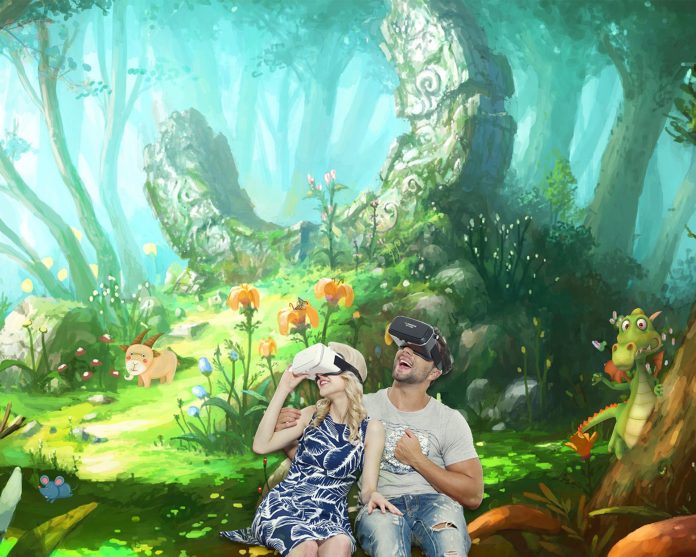The use of virtual reality (VR) is becoming more available and affordable. Virtual reality studies demonstrate its usefulness in promoting well-being. Various VR tools can be used in many contexts to improve an individual’s well-being.
Virtual reality in the workplace
Nature and green spaces are cost-effective approaches to promoting well-being. However, this access is less feasible for individuals living in urbanized areas.1 Using a VR headset at work increases the opportunity for employees to experience the benefits of nature.
Virtual reality tool usage in the workplace is great for clinicians working in a fast-paced trauma service. VR tools increase feelings such as happiness and decrease emotions such as anxiety.1 Participating in a VR exercise can also lead to a reduction in heart rate.1
Participants in a recent study used a VR headset for 30 minutes to experience a natural setting (a meadow). Participants were able to explore and interact with the environment using controllers.1 The VR experiment allowed them to take a break from work. The clinicians felt a decrease in feelings of stress and felt calmer.1
Virtual reality during the Covid-19 pandemic
Virtual reality use has been successful in rehabilitation settings. Virtual reality tools in these settings were for providing sensorimotor and cognitive exercises to patients living with
- diabetes,
- arthritis,
- spinal and brain injury,
- cerebral palsy,
- stroke effects,
- and age-related deficits.2
Due to the success of VR tools in rehabilitation settings, new research and uses came about during the isolation time of the COVID-19 pandemic.
Isolation can contribute to sedentary behaviour, cognitive issues, and mood or mental health concerns.2 During the pandemic, individuals were using VR exercise in their homes to enhance their physical and psychological well-being.2
A study corroborating the benefits of VR tools was seen during a study from China. The study results were positive for VR use with traditional exercise equipment or even without. Participants were able to mimic exercises such as
- swimming,
- sailing,
- jogging,
- and hiking
to enhance their physical and mental health.2
Fitness games were also a form of exercise with VR during the study. Participants found VR games entertaining and motivating.2 The technology was also helpful for providing feedback for goal-setting and performance.2 Each of the findings is helpful for long-term exercise adherence.2
Virtual reality and dementia
A research review analyzing 19 studies about the effects of VR on the well-being of persons with dementia (PwD) also found promising results.3 Overall, these studies found that VR interventions for PwD can help improve mobility, decrease falls and train cognitive abilities.3
Virtual reality is also helpful for safely practicing daily activities. For example, in a recent study, participants made a virtual cup of coffee with a virtual coffee maker.3 VR tools can assess an individual’s capability for performing these tasks without the risks, i.e., burns.3
Virtual reality also enhances autonomy.3 VR can allow for participation in a social setting without feeling stigma or endangerment by others.3 In addition, it enables verbal interactions, improving their social-emotional behaviour.3
Well-being as a reality with VR
Virtual reality tools help promote well-being and can help provide accessible ways to live a healthy and meaningful life.3 However, there are still future research areas, such as the dose regimen.3. For example, what is the appropriate time, frequency, and duration of use of the tools for different situations? Including various healthcare stakeholders in the design process will ensure the validity of VR tools and their usage.3
References
- Adhyaru, J.S. and Kemp, C., 2022. Virtual reality as a tool to promote wellbeing in the workplace. Digital Health, 8, p.20552076221084473.
- Peng, X., Menhas, R., Dai, J. and Younas, M., 2022. The COVID-19 pandemic and overall wellbeing: mediating role of virtual reality fitness for physical-psychological health and physical activity. Psychology Research and Behavior Management, 15, p.1741.
- Appel, L., Ali, S., Narag, T., Mozeson, K., Pasat, Z., Orchanian-Cheff, A. and Campos, J.L., 2021. Virtual reality to promote wellbeing in persons with dementia: A scoping review. Journal of Rehabilitation and Assistive Technologies Engineering, 8, p.20556683211053952.



